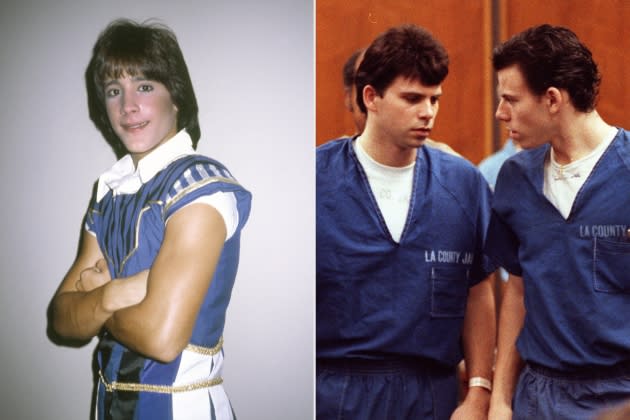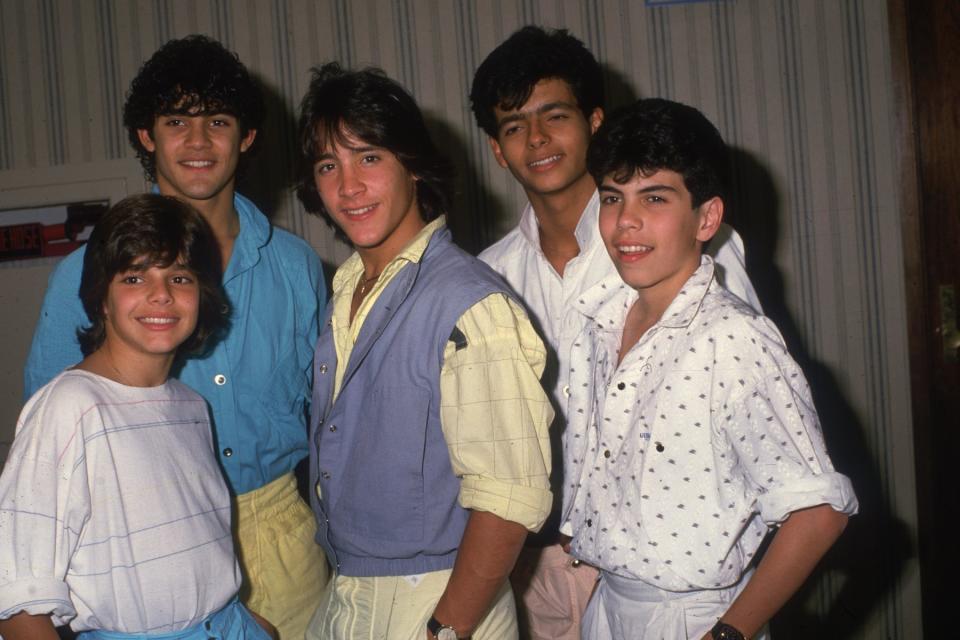A Menudo Boy Bander’s Disturbing Link to the Menendez Brothers

Two sensational stories collide in Menendez + Menudo: Boys Betrayed, a new three-part documentary series airing on Peacock. One helped bring the culture into the era of nonstop TV crime and jurisprudence coverage: the grisly 1989 murder of Jose and Kitty Menendez by their sons, Erik and Lyle. The other involves the former Puerto Rican boy band sensation Menudo, and longstanding accusations of sexual abuse against the group’s Svengali and manager, Edgardo Díaz. The Menendez brothers, currently serving life in prison, have always maintained that their father raped them from the time they were small children. Now, a former Menudo member, Roy Rosselló, has claimed that Jose Menendez, then an executive at RCA Records (which signed Menudo to a multimillion-dollar contract), raped him as well, in the family’s New Jersey home. The implication in the docuseries is that Díaz offered Rosselló to Menendez as a means to seal the deal.
It’s a sad, sordid story, told here with the kinds of reality-TV tropes – on-camera apologies, tearful reunions – designed for maximum emotional impact. But the series, directed by Esther Reyes, also suggests there’s plenty of fire to go with the smoke, even if the two components don’t always connect and it remains to be seen what the end result might eventually be.
More from Rolling Stone
There’s a lot more Menudo than Menendez here, which is fine; the murder story has been regurgitated and dramatized ad nauseum for more than 30 years now, with the latest, upcoming sample, Ryan Murphy’s Netflix series Monsters: The Lyle and Erik Menendez Story, just announced. Rosselló, by contrast, is a lesser-known figure. A Menudo member from 1983 to 1986, he claims he was continually raped by Díaz, who did not participate in the series, starting when he was 13. He is the main character here, a middle-aged man determined to have his voice heard and bring Díaz to justice. If he can somehow help the Menendez brothers along the way, by arguing that he, too, was raped by their father after Díaz delivered him to the Menendez residence, he’s more than willing to do that as well.
Menendez completists might remember that the brothers’ first trial ended with a mistrial, as six jurors determined that the brothers’ sexual abuse claims were valid and that they committed manslaughter, not murder. Then came the O.J. Simpson acquittal, not a shining moment for the Los Angeles County District Attorney’s office. Menendez + Menudo argues that this embarrassment steeled both prosecutors and judge, who made sure to minimize all sexual abuse testimony in the second trial. The brothers were convicted of murder in 1996. Meanwhile, in the present, two journalists, Robert Rand and Nery Ynclan, take an interest in Rosselló’s story as a means of reopening the Menendez case.
That case has a way of drifting into the background for long stretches here as Rosselló takes center stage. Menendez + Menudo works best as a damning brief against Díaz and a culture of complicity which, according to several sources interviewed here, allowed him to prey on the young teens that cycled in and out of Menudo (group members were generally replaced when they turned 16). The series paints a convincing picture of a monster whose sex crimes were covered up by media who exchanged their silence for exclusive coverage of Latin America’s biggest pop phenomenon, and law enforcement who saw Menudo as a cash cow beneficial to the territory as a whole.

Claims of the Menudo life’s dark side have circulated for decades, including in last year’s HBO Max docuseries Menudo: Forever Young. But Rosselló, a determined born again Christian on a mission, takes things a step further, filing a police report in Los Angeles and allowing the Menendez + Menudo crew to follow his every utterance and step. Along the way we’re reminded of the many reasons why victims of sexual abuse often don’t report the crimes, from shame and trauma to, in this case, intimidation and a conflicted commitment to keeping a hugely popular illusion intact. Menudo, after all, made so many people happy. Who would want to believe a sexual predator was pulling all the strings behind the scenes?
Rosselló’s Menudo story would make an engaging documentary in itself; the Menendez angle almost feels like a hook, something to pull the viewer into a tale of how stardom and influence can be used to obscure all manner of evil. Then again, that hook might yet bear legal fruit. The Menendez brothers remain in prison; their case has not been reopened. But this story has been volatile from the start. Further twists should surprise nobody.
Best of Rolling Stone
Solve the daily Crossword

